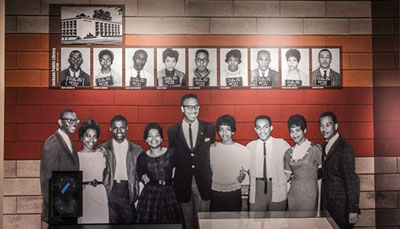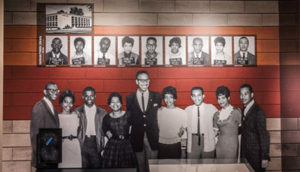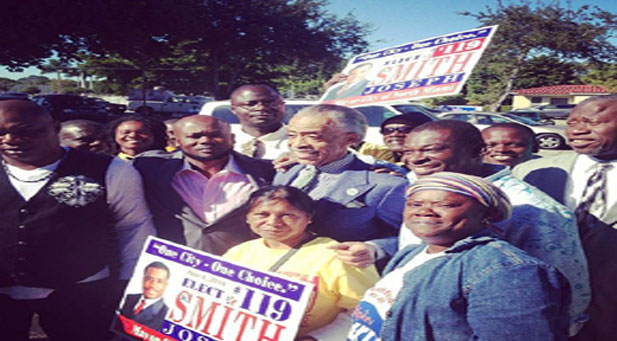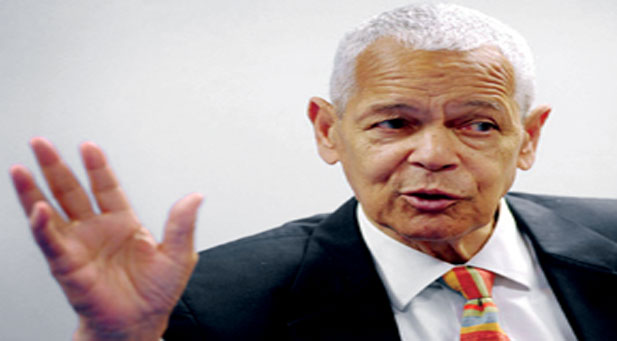

Mississippi Civil Rights Museum tell authentic stories from the Movement
The Mississippi Civil Rights Museum tells the stories of Mississippi residents that made extraordinary contributions to the Civil Rights Movement.
By Freddie Allen (Editor-in-Chief, NNPA Newswire)
In the early morning hours of January 10, 1966, civil rights leader Vernon Dahmer Sr. was jolted from his sleep, as members of the Ku Klux Klan surrounded his house just north of Hattiesburg, Miss. Dahmer, a Black landowner, had been actively working to register Blacks to vote and, in some cases, he even paid their “poll” taxes. It was enough to earn a Black man a death sentence in the South.
The Klansmen bullets ripped through the darkness splintering wood and shattering glass as they fired on Dahmer’s house; one of them hurled a Molotov cocktail through the window; the Klan wanted to burn Dahmer and his family alive.
As smoke and flames engulfed his home, Dahmer grabbed his shotgun and blasted his way out, creating a diversion as the rest of his family fled into the woods. Later that day, Dahmer died from smoke inhalation at an area hospital.
A few days later, Dahmer’s voter registration card arrived in the mail.
“These are the kinds of stories we talk about in the Mississippi Civil Rights Museum,” said Pamela Junior, the museum’s director. “We tell people all the time: Museums are living and breathing places.”
Junior lamented that, oftentimes, the history of the Civil Rights Movement is told through the narrow lens of a few key figures, like Martin Luther King, Jr. and Rosa Parks. She said that it was important that people know that Mississippi was ground zero for the Movement; the Mississippi Civil Rights Museum helps to tell the stories of the people that were there.
“What we want to do is make sure that the stories are told authentically,” Junior said. “We have our own native son, Medgar Wiley Evers. We have Fannie Lou Hamer, June Johnson, Owen Brooks… local people who made up the Movement.”
Junior said that it was also important to show that civil rights leaders were ordinary people, yet they still managed to have a significant impact on the course of American history.
Junior continued: “So, to see something so powerful that these regular, poor people did to make things happen in the state of Mississippi is awesome.”
The Mississippi Civil Rights Museum opened on December 9, 2017. The Clarion Ledger re-ported that the Dahmer family donated a truck that had been shot during the 1966 attack to the Mississippi CivilRights Museum.
The museum promotes a greater understanding of the Civil Rights Movement in Mississippi and shares the stories of the movement that changed the world.
A press release that described the museum said that visitors can witness the freedom struggle in eight interactive galleries that show the systematic oppression of Black Mississippians and their fight for equality that transformed the state and nation.
The press release continued: “Seven of the galleries encircle a central space called ‘This Little Light of Mine.’ There, a drama-tic sculpture glows brighter and the music of the Movement swells as visitors gather.”
Each museum gallery high-lights a specific sub-topic or period. Gallery 1 defines civil and human rights; Gallery 2 focuses on the Civil War and Reconstruction; Gallery 3 highlights civil rights activists and shares the stories of a Mississippi movement that changed the world; Gallery 4 peels back the layers of a segregated society; Gallery 5 showcases the sacrifices and the successes of the 1960s; Gallery 6 takes a deep dive into the Freedom Summer and local movements in Mississippi (1963-1964); and Gallery 7 tells the story of Black Empowerment from 1965 to the early 1970s.





Be the first to comment